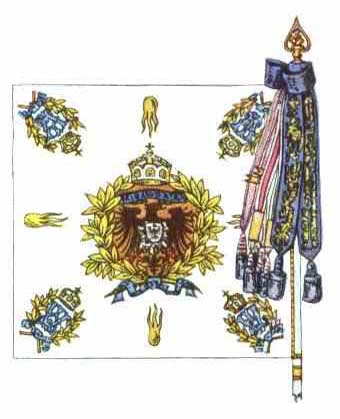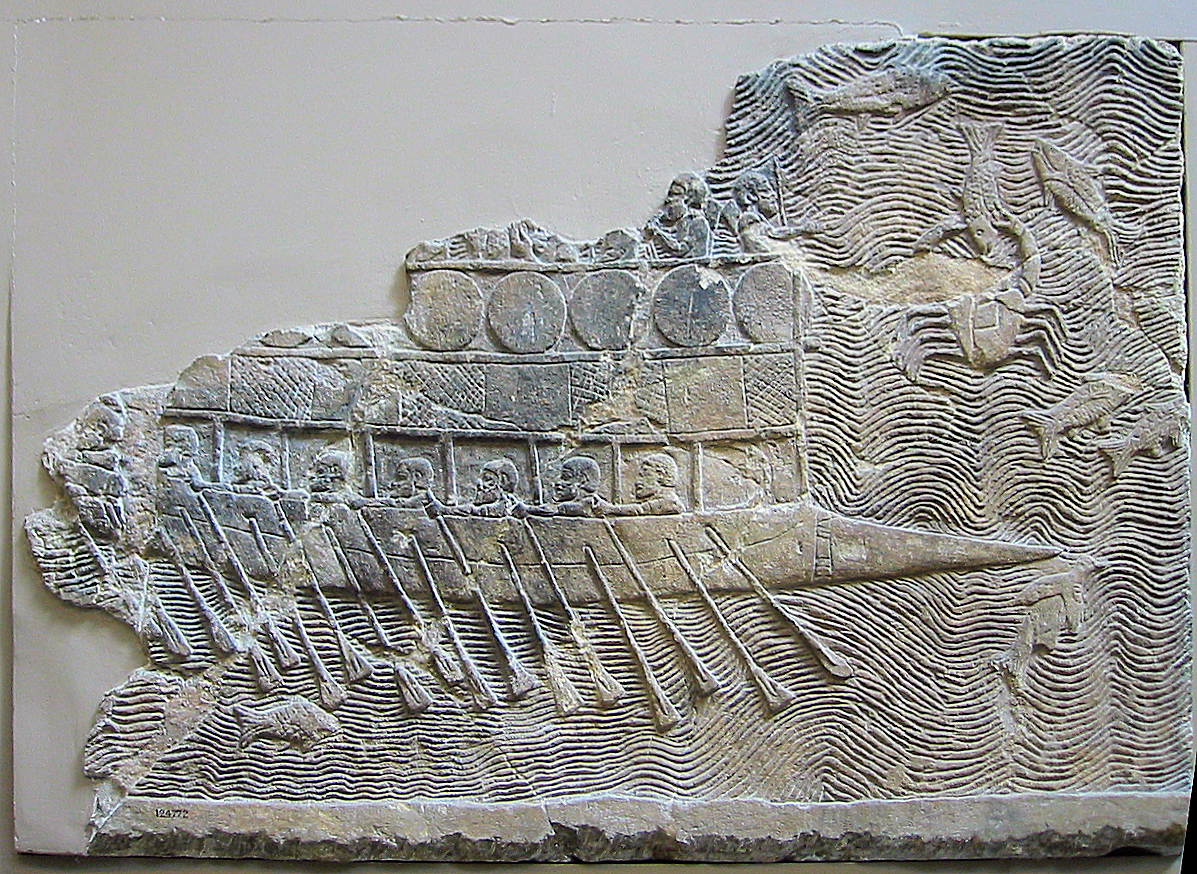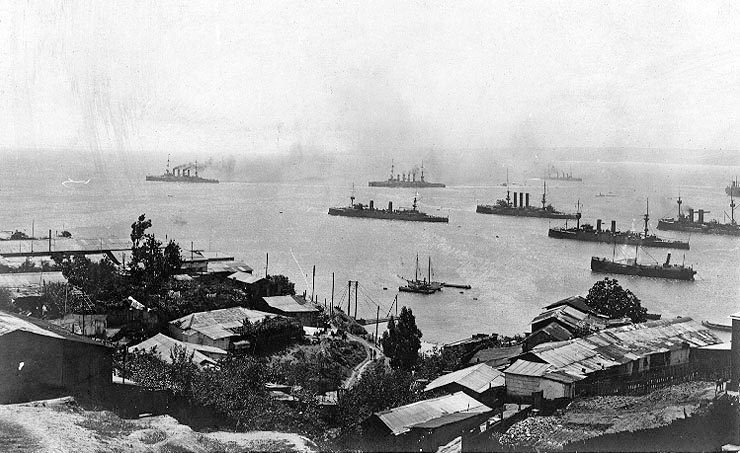|
Seebataillon
''Seebataillon'' (plural ''Seebataillone''), literally "sea battalion", is a German term for certain troops of naval infantry or marines. It was used by the Prussian Navy, the North German Federal Navy, the Imperial German Navy, the Austro-Hungarian Navy, the ''Kriegsmarine'', and briefly in the ''Bundesmarine''. In 2014, also the modern German Navy established a naval force protection unit called ''Seebataillon''. Establishment and history Kingdom of Prussia The first ''Seebataillon'' was organized on 13 May 1852 as the Royal Prussian ''Marinier-Korps'' at Stettin. This formation provided small contingents of marines to perform traditional functions such as protecting officers, general policing aboard warships and limited amphibious shore intrusions. The ''Seebataillon'' in 1870 had a strength of 22 officers and 680 non-commissioned officers and men. Battalion headquarters was then located at Kiel. German Empire After the establishment of the German Empire in 1871, Chancel ... [...More Info...] [...Related Items...] OR: [Wikipedia] [Google] [Baidu] |
Naval Force Protection Battalion (Germany)
The Sea Battalion (german: Seebataillon) is a land formation of the German Navy. It was formed in Eckernförde on 1 April 2014, succeeding the Naval Protection Force and the Naval Force Protection Battalion, against a background of rapidly escalating tensions in Eastern Europe centering around Ukraine. Structure The Sea Battalion is made up of around 1,100 sailors and structured into four companies plus support elements. Every company, led by a lieutenant commander (''Korvettenkapitän'', OF-3), is specialized in specific field of force protection. * Seebataillon ** HQ *** S1 *** S2 *** S3 *** S4 *** S6 *** medical support group ** coastal defence company (''Küsteneinsatzkompanie'') *** 1st platoon *** 2nd platoon *** 3rd platoon *** 4th platoon *** 5th platoon (inactive) ** boarding company (''Bordeinsatzkompanie'') *** 1st platoon *** 2nd platoon *** 3rd platoon *** 4th platoon ** mine clearance diving company (''Minentaucherkompanie'') *** diver platoon (for seabased o ... [...More Info...] [...Related Items...] OR: [Wikipedia] [Google] [Baidu] |
Naval Infantry
Marines, or naval infantry, are typically a military force trained to operate in littoral zones in support of naval operations. Historically, tasks undertaken by marines have included helping maintain discipline and order aboard the ship (reflecting the pressed nature of the ship's company and the risk of mutiny), the boarding of vessels during combat or capture of prize ships, and providing manpower for raiding ashore in support of the naval objectives. In most countries, the marines are an integral part of that state's navy. The exact term "marine" does not exist in many languages other than English. In French-speaking countries, two terms exist which could be translated as "marine", but do not translate exactly: and ; similar pseudo-translations exist elsewhere, e.g. in Portuguese (). The word ''marine'' means "navy" in many European languages such as Dutch, French, German, Italian and Norwegian. History In the earliest day of naval warfare, there was little distinc ... [...More Info...] [...Related Items...] OR: [Wikipedia] [Google] [Baidu] |
Marines (military)
Marines, or naval infantry, are typically a military force trained to operate in littoral zones in support of naval operations. Historically, tasks undertaken by marines have included helping maintain discipline and order aboard the ship (reflecting the pressed nature of the ship's company and the risk of mutiny), the boarding of vessels during combat or capture of prize ships, and providing manpower for raiding ashore in support of the naval objectives. In most countries, the marines are an integral part of that state's navy. The exact term "marine" does not exist in many languages other than English. In French-speaking countries, two terms exist which could be translated as "marine", but do not translate exactly: and ; similar pseudo-translations exist elsewhere, e.g. in Portuguese (). The word ''marine'' means "navy" in many European languages such as Dutch, French, German, Italian and Norwegian. History In the earliest day of naval warfare, there was little dist ... [...More Info...] [...Related Items...] OR: [Wikipedia] [Google] [Baidu] |
Paul Emil Von Lettow-Vorbeck
Paul Emil von Lettow-Vorbeck (20 March 1870 – 9 March 1964), also called the Lion of Africa (german: Löwe von Afrika), was a general in the Imperial German Army and the commander of its forces in the German East Africa campaign. For four years, with a force of about 14,000 (3,000 Germans and 11,000 Africans), he held in check a much larger force of 300,000 British, Indian, Belgian, and Portuguese troops. Essentially undefeated in the field, Lettow-Vorbeck was the only German commander to successfully invade a part of the British Empire during the First World War. His exploits in the campaign have been described by Edwin Palmer Hoyt as "the greatest single guerrilla operation in history, and the most successful". Early life Paul Emil von Lettow-Vorbeck was son of Paul von Lettow-Vorbeck (1832–1919) and Marie von Eisenhart-Rothe (1842–1919). He was born into the Pomeranian minor nobility, while his father was stationed as an army officer at Saarlouis in the Prussian R ... [...More Info...] [...Related Items...] OR: [Wikipedia] [Google] [Baidu] |
Imperial German Navy
The Imperial German Navy or the Imperial Navy () was the navy of the German Empire, which existed between 1871 and 1919. It grew out of the small Prussian Navy (from 1867 the North German Federal Navy), which was mainly for coast defence. Wilhelm II, German Emperor, Kaiser Wilhelm II greatly expanded the navy. The key leader was Admiral Alfred von Tirpitz, who greatly expanded the size and quality of the navy, while adopting the sea power theories of American strategist Alfred Thayer Mahan. The result was a Anglo-German naval arms race, naval arms race with Britain, as the German navy grew to become one of the greatest maritime forces in the world, second only to the Royal Navy. The German surface navy proved ineffective during the First World War; its only major engagement, the Battle of Jutland, was a draw, but it kept the surface fleet largely in port for the rest of the war. The submarine fleet was greatly expanded and threatened the British supply system during the Atlantic ... [...More Info...] [...Related Items...] OR: [Wikipedia] [Google] [Baidu] |
Tsingtao
Qingdao (, also spelled Tsingtao; , Mandarin: ) is a major city in eastern Shandong Province. The city's name in Chinese characters literally means " azure island". Located on China's Yellow Sea coast, it is a major nodal city of the One Belt, One Road (OBOR) Initiative that connects Asia with Europe. It has the highest GDP of any city in the province. Administered at the sub-provincial level, Qingdao has jurisdiction over seven districts and three county-level cities (Jiaozhou, Pingdu, Laixi). As of the 2020 census, Qingdao built-up (or metro) area made of the 7 urban Districts (Shinan, Shibei, Huangdao, Laoshan, Licang, Chengyang and Jimo) was home to 7,172,451 inhabitants. Lying across the Shandong Peninsula and looking out to the Yellow Sea, it borders the prefecture-level cities of Yantai to the northeast, Weifang to the west and Rizhao to the southwest. Qingdao is a major seaport and naval base, as well as a commercial and financial center. It is home to electronics ... [...More Info...] [...Related Items...] OR: [Wikipedia] [Google] [Baidu] |
Kiautschou Bay Concession
The Kiautschou Bay Leased Territory was a German leased territory in Imperial and Early Republican China from 1898 to 1914. Covering an area of , it centered on Jiaozhou ("Kiautschou") Bay on the southern coast of the Shandong Peninsula (german: Schantung Halbinsel). ''Jiaozhou'' became romanized as Kiaochow, Kiauchau or Kiao-Chau in English and as Kiautschou or Kiaochau in German. The administrative center was at Tsingtau (Pinyin ''Qingdao''). It was operated by the East Asia Squadron of the Imperial German Navy. The Russian Empire resented the German move as an infringement on Russian ambitions in the region. Background of German expansion in China Germany was a relative latecomer to the imperialistic scramble for colonies across the globe. A German colony in China was envisioned as a two-fold enterprise: as a coaling station to support a global naval presence, and because it was felt that a German colonial empire would support the economy in the mother country. Densely ... [...More Info...] [...Related Items...] OR: [Wikipedia] [Google] [Baidu] |
East Asia Squadron
The German East Asia Squadron (german: Kreuzergeschwader / Ostasiengeschwader) was an Imperial German Navy cruiser Squadron (naval), squadron which operated mainly in the Pacific Ocean between the mid-1890s until 1914, when it was destroyed at the Battle of the Falkland Islands. It was based at Germany's Kiautschou Bay concession in China. Background The Treaty of Tientsin, Treaty of Peking of September 1861 between the Kingdom of Prussia and China allowed Prussian warships to operate in Chinese waters. As East Asia grew in economic and political importance to the recently united Germany, in 1881 a flying squadron was formed for the area under the command of a flag officer. Since African colonies were then seen as of greater value, an African Cruiser Squadron was established in 1885 with permanent status, and shortly thereafter the Imperial German Navy reduced the East Asia presence to two small gunboats. From 1888 to 1892, was flagship of the German East Asia Squadron, initial ... [...More Info...] [...Related Items...] OR: [Wikipedia] [Google] [Baidu] |
Kamerun
Kamerun was an African colony of the German Empire from 1884 to 1916 in the region of today's Republic of Cameroon. Kamerun also included northern parts of Gabon and the Congo with western parts of the Central African Republic, southwestern parts of Chad and far eastern parts of Nigeria. History Years preceding colonization (1868–1883) The first German trading post in the Duala area on the Kamerun River delta was established in 1868 by the Hamburg trading company . The firm's primary agent in Gabon, Johannes Thormählen, expanded activities to the Kamerun River delta. In 1874, together with the Woermann agent in Liberia, Wilhelm Jantzen, the two merchants founded their own company, Jantzen & Thormählen there. Both of these West Africa houses expanded into shipping with their own sailing ships and steamers and inaugurated scheduled passenger and freight service between Hamburg and Duala. These companies and others obtained extensive acreage from local chiefs and bega ... [...More Info...] [...Related Items...] OR: [Wikipedia] [Google] [Baidu] |
Albrecht Von Stosch
Albrecht von Stosch (20 April 1818 – 29 February 1896) was a German General of the Infantry and admiral who served as first chief of the newly created Imperial German Navy from 1872 to 1883. Life Born in Koblenz, he was a cousin of Hans Stosch-Sarrasani, the founder of the Circus Sarrasani. He was the third son of Prussian general Hermann Ferdinand Stosch, who was a traditional military man who had a nationalistic feelings. Just like his father, Stosch was conscious of the tradition of duty and service, and Prussian military heritage was a strong political opinion of his. After being educated in state schools and a Gymnasium, in 1829 Stosch was admitted to the Cadet corps. In 1835 Stosch, aged seventeen, was appointed as second-lieutenant in the Prussian Army. He eventually became a General Staff officer. Stosch participated in the Austro-Prussian War as ''Oberquartiermeister'' of the Second Army. After the Franco-Prussian War, Stosch was also appointed as an admiral ... [...More Info...] [...Related Items...] OR: [Wikipedia] [Google] [Baidu] |
Boxer Rebellion
The Boxer Rebellion, also known as the Boxer Uprising, the Boxer Insurrection, or the Yihetuan Movement, was an anti-foreign, anti-colonial, and anti-Christian uprising in China between 1899 and 1901, towards the end of the Qing dynasty, by the Society of Righteous and Harmonious Fists (), known as the "Boxers" in English because many of its members had practised Chinese martial arts, which at the time were referred to as "Chinese boxing". After the Sino-Japanese War of 1895, villagers in North China feared the expansion of foreign spheres of influence and resented the extension of privileges to Christian missionaries, who used them to shield their followers. In 1898 Northern China experienced several natural disasters, including the Yellow River flooding and droughts, which Boxers blamed on foreign and Christian influence. Beginning in 1899, Boxers spread violence across Shandong and the North China Plain, destroying foreign property such as railroads and attacking or ... [...More Info...] [...Related Items...] OR: [Wikipedia] [Google] [Baidu] |
Erich Ludendorff
Erich Friedrich Wilhelm Ludendorff (9 April 1865 – 20 December 1937) was a German general, politician and military theorist. He achieved fame during World War I for his central role in the German victories at Liège and Tannenberg in 1914. Following his appointment as First Quartermaster-general (german: Erster Generalquartiermeister) of the Imperial Army's Great General Staff in 1916, he became the chief policymaker in a ''de facto'' military dictatorship that dominated Germany for the rest of the war. After Germany's defeat, he contributed significantly to the Nazis' rise to power. Erich Ludendorff came from a family of the minor nobility in Ludendorff, (now Kruszewnia), located in the Prussian province of Posen. After completing his education as a cadet, he received his commission as a junior officer in 1885. Later in 1893, Ludendorff was admitted to the prestigious German War Academy and was recommended by its commandant to the General Staff Corps only a year later. ... [...More Info...] [...Related Items...] OR: [Wikipedia] [Google] [Baidu] |








